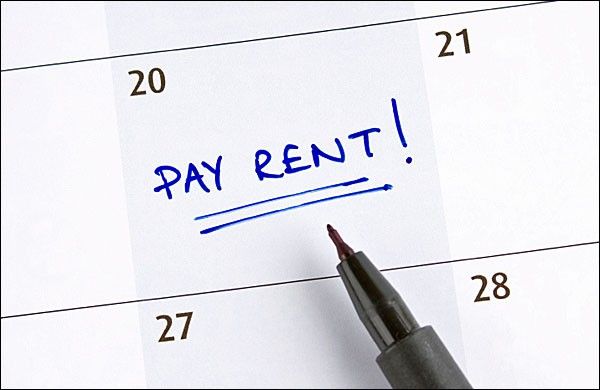Now that COVID-19 is Over, What are My Options if I’m Past Due on Rent in Massachusetts?
As we move beyond the COVID-19 pandemic, many Massachusetts residents are wondering about their overdue rent options. If you’re one of them, let’s explore your options.
Dialogue with Your Landlord
One of the overdue rent options in Massachusetts is to initiate a conversation with your landlord. Negotiate a manageable payment plan. Many landlords understand the financial difficulties caused by the pandemic.
When discussing late rent with your landlord, follow these steps:
- Schedule a meeting or contact your landlord to address the issue promptly.
- Be honest and upfront about your situation, explaining the reasons for the delay.
- Take responsibility for the late payment and apologize for any inconvenience caused.
- Offer a plan to catch up on the overdue rent, proposing a reasonable timeline or installment options.
- Be prepared to provide documentation or evidence supporting your circumstances, if applicable.
- Show your willingness to maintain open communication and keep your landlord informed of any changes.
- Express your commitment to fulfilling your rental obligations moving forward.
- Discuss any potential late fees or penalties and negotiate a resolution, if necessary.
- Be receptive to your landlord’s perspective and be open to finding a mutually agreeable solution.
- Once an agreement is reached, ensure that you adhere to the agreed-upon payment plan and fulfill your responsibilities promptly.
Remember, maintaining open and respectful communication with your landlord is crucial to resolving any issues regarding late rent.
Mediation Services
If you can’t reach an agreement, consider mediation. This process involves a neutral third party helping to broker a resolution.
At Reeves Lavallee PC, we offer professional mediation services, providing a viable overdue rent option in Massachusetts.
Seek Rental Assistance
Another one of the overdue rent options in Massachusetts is to apply for rental assistance. The Massachusetts Rental Voucher Program (MRVP) and the Residential Assistance for Families in Transition (RAFT) program can offer help.
Visit the Massachusetts Department of Housing and Community Development website for more information.
Free legal advice is available for those who can’t afford a lawyer through legal aid societies.
The Massachusetts Legal Assistance Corporation is a resource for help with eviction cases and other housing problems.
Preparing for Court
In case you receive an eviction notice, it’s essential to stay calm. Remember, eviction is a legal process, and you have rights throughout this process.
Understand the Eviction Process
Start by familiarizing yourself with Massachusetts eviction laws. Understanding the process can help you protect your rights and take appropriate action.
Massachusetts Eviction Laws
- Massachusetts eviction laws provide guidelines for landlords to legally remove tenants from rental properties.
- Landlords must provide written notice to tenants before initiating the eviction process.
- Tenants have the right to respond to eviction notices within a specific time frame.
- If a tenant fails to respond or resolve the issue, landlords can file a lawsuit.
- The court may issue a summons for a hearing to determine the validity of the eviction.
- If the court rules in favor of the landlord, an execution can be obtained to remove the tenant.
- In certain cases, such as nonpayment of rent, landlords can proceed with expedited evictions.
- Massachusetts law prohibits “self-help” evictions or removals without following legal procedures.
- Landlords must follow specific procedures for evicting tenants who receive housing subsidies.
- It’s crucial for both landlords and tenants to understand and comply with Massachusetts eviction laws.
Retain Legal Counsel
Even if you’re going to court, it’s not over. Seek legal counsel if possible. At Reeves Lavallee PC, our expert attorneys can guide you through the eviction process, ensuring your rights are upheld.
The Right to a Fair Trial
You have the right to a fair trial. This means you can present your case, including any evidence of your attempts to pay rent or address the problem.
Housing Court
Consider transferring your case to a Housing Court if your case is filed in a District or Boston Municipal Court. Massachusetts’ Housing Courts have more experience with landlord-tenant issues.
Negotiate a Settlement or Payment Plan in Court
In court, you can still negotiate a settlement or payment plan. Massachusetts courts often encourage this, as it can be a win-win for both parties.
In these challenging times, remember, you’re not alone. At Reeves Lavallee PC, we stand ready to guide you through your rent-related concerns. Our dedicated team of experienced attorneys will fight for your rights and strive to find the best possible solution for your unique situation. Don’t let overdue rent cause undue stress. Act now, and let us help you navigate this complex issue. Reach out today for a consultation and take the first step towards regaining your peace of mind.
#RentRelief #PostCovidRent #MassachusettsRenters #RentNegotiations #LandlordTenantDialogue #MediationServices #RentalAssistanceMA #EvictionLaws #LegalAid #HousingRights #FairTrial #HousingCourt #PaymentPlanNegotiations #MRVP #RAFTprogram #EvictionHelp #ReevesLavalleePC #MassachusettsRentalVoucherProgram #ResidentialAssistanceForFamiliesInTransition #MassachusettsLegalAssistanceCorporation #LegalCounselForRenters #UnderstandingEviction #RentPaymentSolutions

